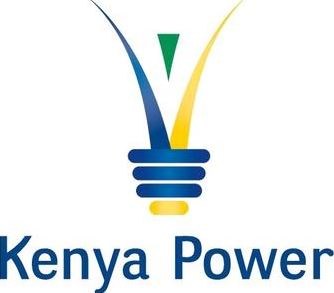Verily volume has been stuck at these exiguous levels. This week saw it decline to 74,117,000 shares from the previous week’s 83,117,000 shares (-10.8%). Weekly turnover slid to Kshs. 1,977,856,632 from Kshs. 2,621,378,099 (-24.5%). This remarkably larger plunge in turnover, when juxtaposed with the dip in volume, indicates how much damage has been done to the indices. The benchmark NSE 20 tumbled to 3543.99 (-2.28%) while the broad NASI followed suit, descending to 154.93 (-2.71%). NSE 25 depreciated to 4048 (-1.79%).
Politics
On Wednesday 18th October, a prominent IEBC commissioner, Roselyn Akombe, resigned from the electoral body. Being a citizen of the glorious Trump laden country, she escaped to the US under the façade of an official trip to Dubai. Her reasons for the commission being unable to hold an election of the required standard were:
- Partisan commissioners always voting to further coloured interests
- A barrage of court cases targeting the IEBC
- Interference from politicians
- Violence targeting IEBC officials carrying out training and preparations for the repeat Presidential election
On the same day, the Chairman of the independent body, Wafula Chebukati, addressed the nation. In his statement, he expressed regret over the resignation of Akombe. He also made more perturbing statements:
- “I have made several attempts to make critical changes…defeated by a majority of the Commissioners. Under such conditions, it is difficult to guarantee free, fair and credible elections.”
- “I would rather bow out with my name intact and my head lifted high than to be a part of a process where personal interests dwarf the interest of the nation…I am therefore not ready to sacrifice an eternal legacy for short-term gains that will sear my conscience.”
- “I know there are elements who would love…to hear me announce my resignation…but…I am determined to make this Commission work.”
We can deduce that there is definitely a hint at resignation if all the players including internal stakeholders of the electoral body do not put the country first. However, he also offers his commitment to carrying out his duties. His resignation would render the commission a headless chicken in the eyes of the law.
There have also been attempts by the EACC (Ethics and Anti-Corruption Commission) at investigating the court registrar who reported on the election results declaration forms to the Lord Justices of the Supreme Court. It is alleged that the decision to nullify the August 8th election was based on forged documents. Immediately upon conveyance of intention to investigate the said person, the President of the Law Society of Kenya issued a statement condemning the probe in the matter of the nullification of the Presidential election, holding that it would amount to an attack on the independence of the judiciary. Such investigations have actually taken part in the past, but never in such a sensitive case. One of the dissenting judges had stated in her judgement that the majority judges had not bothered to look at the forms which reportedly lacked security features.
The IEBC Chairman has repeatedly tried in vain to get the two main competing principals to sit down and talk, mirroring the desire of several other prominent bodies and persons, communities and societies, but merely managed a meeting with the opposition coalition principals or the incumbent president’s agents; never together.
The opposition called off demonstrations after winning a court case against barring protests in the central business districts of the main cities of Kenya. “This was to tend to the victims of police brutality”. The leader of the coalition has stated that he will address the nation on the way forward on 25th October 2017, a day before the repeat presidential election. It is possible that he will re-enter the Presidential race, having used the scheme of pulling out in order to ‘prevent preparations to engineer his unfair defeat’.
Telecommunications Sector
Safaricom Kshs. 24 (-4%) experienced investor network problems as 34,338,800 shares were beamed to buyers. The monopoly corporation has launched a new innovation centre called ‘Safaricom Alpha’. This will leverage on data generated by its Mpesa platform on spending patterns to develop additional products. As at 30th June 2017, it had 72.6% of all 40,259,476 mobile subscriptions in the country.
Over the past 5 years, Mpesa revenue has gone up from Kshs. 21.8b in 2013 to Kshs. 55.1b in the year ended 30th March 2017 (+152.8%). It went from being 18% of sales revenue to 27% of sales revenue over the stated number of years.
Mobile data revenue has grown with even more magnitude; surging from Kshs. 6.6b in FY13 to Kshs. 29.3b in FY17 (+343.9%). Constituting 14% of sales revenue in the latest report, up from being 6% of sales revenue in 2013.
Voice and SMS revenue has grown at a slower pace from Kshs. 86b to Kshs. 110.1b over the past 5 years (+28%). However, it was only 54% of sales revenue for the year ended 30th March 2017, down significantly from being a whopping 73% of sales revenue. We expect this proportion to decrease even further. This will protect the telecommunication giant’s top line from disruptive technologies such as WhatsApp and Facebook Messenger calling, which make use of mobile data to connect calls.
The outperformer expects its EBIT to be atleast Kshs. 71b in the 2018 full year financial statements. This will represent a 5.97% growth over the Kshs. 67b reported in the 2017 financial statements, remarkably lower than the 21.6% growth reported in the latest full year results.
A major risk factor is that the opposition may call for a boycott of Safaricom’s products as retaliation to its “alleged interference” in the August 8th 2017 elections.
Banking Sector
Equity Bank Kshs. 36.25 (+0.69%) traded 11,700,900 shares. Net interest income for the half year ended 30th June 2017 decreased to Kshs. 17.9b as compared to Kshs. 21.2b in the quondam period (-15.6%). However, total non-interest income stood at Kshs. 13b up 20% from the Kshs. 10.8b reported in the period ended 30th June 2016.
KCB Kshs. 36.50 (-1.35%) moved 8,352,900 shares. Net interest income came in at Kshs. 21.2b in the latest reports, pleasantly higher than the Kshs. 20.5b reported for the period ended 30th June 2016 (+3.4%). Total non-interest income in the half year 2017 clocked Kshs. 7.9b contrasted with Kshs. 7.8b (+1.3%).
Co-operative Bank Kshs. 16.10 (-2.42%) saw just 1,140,400 shares exchange hands. Supply is not ample at lower levels. Net interest income for the half year ended 30th June 2017 was marginally lower than the preceding period; Kshs. 13.4b v Kshs. 14.5b (-7.6%). Total non-interest income was a tad bit more encouraging marking Kshs. 7.1b, in comparison to Kshs. 6.8b previously advertised in 2016 (+4.4%).
Barclays Kshs. 9 (-5.26%) was beaten to pulp, being the biggest loser in the sector. 1,154,400 shares went from one point to another. Net interest income came in at Kshs. 10.5b in the half year 2017, differentiated from a similar period which recorded Kshs. 11.1b (-5.4%). Total non-interest income was also lackluster, coming in at Kshs. 4.4b v Kshs. 5.1b (-13.7%).
Commercial and Services
Kenya Airways Kshs. 4.80 (+3.23%) gained some altitude with a cabin factor of 1,575,800 shares during the week. Equity Bank, which was previously obdurate, accepted the national carrier’s restructuring plan to convert loans forwarded of Kshs. 5.1 billion to equity in the troubled airline.
WPP Scangroup Kshs. 17.50 (-2.51%) experienced investors flip through 796,900 shares. Its 52-week low is Kshs. 16 and it trades with a PE ratio of 15.63. The book value is Kshs. 23.25.
Construction and Allied
ARM Cement Kshs. 13.25 (+1.92%) saw the redistribution of 1,376,700 shares. The Standard published a very in depth and informative article about the loss maker’s problems which you can read here.
The cement corporation’s woes started in 2015 when its clinker plant in Tanzania started operating at diminished productivity due to scarcity in electricity supply. The group had borrowed a ton of money which it was unable to convert into long-term loans. As if this wasn’t godawful enough, the company was hit by a devaluation that cost it about 28 and 21 per cent of its value in Tanzania and Kenya, respectively. In 2016, it secured Kshs. 14b in equity from UK based CDC Group, which it used to pay off debt. Suddenly, Tanzanian President John Magufuli banned the import of coal, forcing all users to buy the commodity from only one company, which became overwhelmed with inadequate supply ability. That is when more demons came in for blood; Dangote and Heidelberg Cement commenced price wars which saw the price of cement halve over the period from 2014-2017.
Bamburi Cement Kshs. 175 (-2.23%) shed some weight on moderate volume.
Energy and Petroleum
Kenolkobil Kshs. 14.60 (-0.69%) led the movers with a flow of 4,482,000 shares. This was followed by Kengen Kshs. 8.05 (-7.47%) which took a drubbing on heavy volume, despite strong results skipping the dividend for the second consecutive year did not go down well with shareholders.
KPLC Kshs. 9.55 (-2.05%) experienced low voltage with the transmission of 356,600 shares. The electricity distributor recorded a revenue of Kshs. 120.7 billion for the year ended 30th June 2017 as compared to a revenue of Kshs. 108.4 billion in the previous period (+11.4%). The financial statements for the full year ended 2016 were restated which meant that adjustments were made to the amounts concerned. Profit before tax arrived at Kshs. 10.9 billion from Kshs. 12 billion (-9.7%). This was due to high fuel costs (which almost doubled) and heavier transmission and distribution costs. However, profit after tax was Kshs. 7.3 billion in contrast to Kshs. 7.2 billion restated for the full year ended 30th June 2016 (+0.96%), due to a favourable income tax charge. Dividend remained stable at Kshs. 0.50 per share to be approved by shareholders on 1st December 2017.
Insurance
Kenya Re Kshs. 19.80 (+0.51%) saw new buyers lay claim over 1,046,800 shares while CIC Kshs. 5 (-6.54%) moved 858,800 shares.




